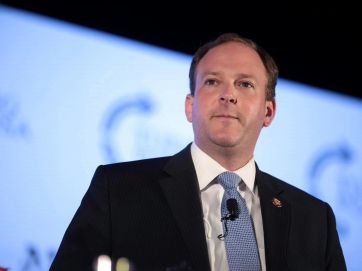The Great Recession officially ended and recovery began in June 2009. The rate of GDP growth reached about 3 percent in late 2009. But thereafter, GDP growth has been slowing: 2.4 percent for 2010, 2 percent for 2011, and 1.8 percent for the first three quarters of 2012. (U. S. Department of Commerce, Bureau of Economic Analysis).
What happened in 2010? “The chairman of the Business Roundtable…President Obama’s closest ally in the business community,” reported Lori Montgomery (“Business leaders say Obama’s economic policies stifle growth,” The Washington Post, June 23, 2010):
accused the president and Democratic lawmakers of creating an “increasingly hostile environment for investment and job creation.” Ivan G. Seidenburg, chief executive of Verizon communications, said that Democrats in Washington are pursuing tax increases, policy changes and regulatory actions that together threaten to dampen economic growth and “harm our ability…to grow private sector jobs in the U. S.”
Health care (Obamacare) and financial (Dodd-Frank) regulations—containing both essential provisions and many especially harmful to small business—were signed into law. Federal regulation (proposed new rules in the Federal Register) “broke its previous all-time record for the second consecutive year” and was “up by 25 percent compared to 2008.” And the federal budget deficit increased more than $1 trillion each year since 2009, for which the government borrowed what “amounts to $55,000 per U. S. household.” (George P. Schultz et al, “The Magnitude of the Mess We’re In,” The Wall Street Journal, September 16, 2012).
The American economy is stagnant, producing a far-lower-than-desired rate of economic growth and nowhere near enough new jobs for a record unemployed labor force. Jim Clifton, head of Gallup (The Chairman’s Blog, gallup.com, September 24, 2012), put it this way:
A question for President Barack Obama, Mitt Romney, and everyone else running for office this year: How are you going to jump-start sales of the company called America? We hear everyone talking about cutting spending and raising taxes. That’s fine and necessary, but how are you going to ignite the almighty GDP? America will go broke during your generation of leadership, regardless of how you manage the federal budget. There will be no money for spending programs and no wealth to be taxed….
Think of America as one huge company that contains 6 million small businesses, about 100,000 mid-sized businesses, and only 1,000 big enterprises. All of its assets combined generate about 100 million real full-time jobs and just over $15 trillion in sales and production. The problem is that the growth of America the company is stalled….
Leaders—especially those in Washington—must realize that the solutions to America the company’s stalled growth won’t come from national government, but at the local level. Economic booms originate in the souls of individuals and great cities….Sales in America will only be realized one city at a time.
Ironically in light of Clifton’s plea, President Obama doubled down on his national government-centered approach of taxing the successful and increasing government spending for innovation, education, and infrastructure.
His approach to the private sector economy is political, not economic. For example, he has touted eighteen tax breaks for small business, but that’s because most have been “targeted and temporary,” to induce short-term actions to meet his political goals. One of his surrogates, Gen. Wesley Clark, reproached Mitt Romney for lowering taxes and closing loopholes and then “letting things take their course.” (This Week, ABC News, September 16, 2012). That is a telling illustration of the difference between government economic control and the economic freedom that created America’s prosperity.
President Obama argues that the middle class causes economic growth, a concept without basis except in Marxism, which prevails in academia in lieu of Western economics. (See my previous article Growth and Governance) He believes that government spending to stimulate demand, not the private sector entrepreneur, creates jobs. Earlier this year, he demeaned business owners, famously saying “If you’ve got a business—you didn’t build that. Somebody else made that happen.” (The White House, Remarks by the President at a Campaign Event in Roanoke, Virginia, July 13, 2012)
His (Simpson-Bowles) and other (Domenici-Rivlin) independent commissions and Republicans argue that economic growth might best be accelerated by tax reform—lowering individual and corporate tax rates along with closing tax loopholes. Lower tax rates increase economic demand as well as job formation. Eliminating tax loopholes removes impediments to economic efficiency. Revenue to balance the budget can come more from economic growth rather than higher taxes. While taxes may not have as large an influence on the economy as other market forces, something striking needs to be done to ignite America’s GDP.
President Obama is hostile to such tax reform. He argues (The White House, Remarks by the President on the Economy in Osawatomie, Kansas, December 6, 2011) that:
There is a certain crowd in Washington who…have said, let’s respond to this economic challenge with the same old tune. “The market will take care of everything,” they tell us. If we just cut more regulations and cut more taxes—especially for the wealthy—our economy will grow stronger….But here’s the problem: It doesn’t work. It has never worked….Over the last few decades…the middle clash shrunk….
He alludes to the Economic Recovery Tax Act of 1981 and the Tax Reform Act of 1986 and reaches the contorted conclusion that they “didn’t work” because their large tax cuts for the wealthy (and everyone else) resulted in unfair inequality and the decline of the middle class, a thesis that is not borne out by the facts, as I showed in "The Middle Class and Governance". He labels the growth those Acts spurred (see Growth) “top-down” economics, another political slogan, not an economic theory.
One of the core concepts of progressivism is the centralized administrative state, as I argued in Law" Tocqueville foresaw the result of such a state in Democracy in America (1835).
The sovereign extends its arms over society as a whole; it covers its surface with a network of small, complicated, painstaking, uniform rules through which the most original minds and the most vigorous souls cannot clear a way…It does not destroy, it prevents things from being born; it does not tyrannize, it hinders, compromises, enervates, extinguishes…
President Obama’s progressive governance has expanded the effect that Tocqueville prophesied.
Elites like the President and his supporters, particularly academics, have generally not been exposed in their college educations to the principles of capitalism and not experienced work in the market economy that produced our nation’s prosperity. (See Exchange) They view economics through the rarified prism of postmodernist ideology, into which the real world never intrudes.
In The Moral Consequences of Economic Growth (2005), Benjamin Friedman demonstrates that economic growth, and the benefits it confers, fosters greater opportunity, social mobility, tolerance of diversity, commitment to fairness, and dedication to democracy. And, he notes, the converse is true with economic stagnation. He adds:
The experience of economic growth or stagnation leaves its mark on a society for a long time thereafter. The experience of widely shared economic growth therefore creates a legacy from which a society can benefit—socially, politically, morally—for decades. And conversely, a significant stretch of years during which incomes stagnate imposes a burden that may well persist long after an economy has once again begun to grow.
Austrian-born Harvard economist Joseph Schumpeter closed his famous work, Capitalism, Socialism, and Democracy (1950) with the following perceptive words:
The Stagnationists are wrong in their diagnosis of the reasons why the capitalist process should stagnate; they may still turn out to be right in their prognosis that it will stagnate with sufficient help from the public sector.
American capitalism suffers from too much help under the yoke of our public sector administrative state. For our economy to be unleashed, the President and Congress need to unfetter the private sector so that it can create urgently needed GDP growth, jobs, and taxable income. The odds of that have not improved. Nonetheless, economic reality rather than political demagoguery will determine our fate and that of future generations.
______________________________________________________________________________
This is one of a series of occasional articles applying the lessons of Western civilization to contemporary issues relevant to the academy.
The Honorable William H. Young was appointed by President George H. W. Bush to be Assistant Secretary for Nuclear Energy and served in that position from November 1989 to January 1993. He is the author of Ordering America: Fulfilling the Ideals of Western Civilization (2010) and Centering America: Resurrecting the Local Progressive Ideal (2002).













